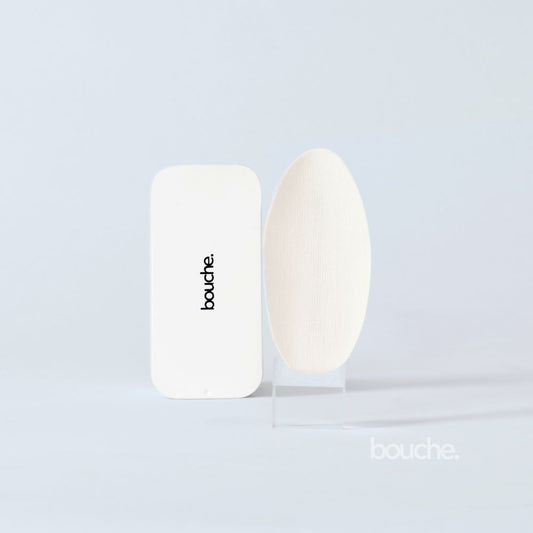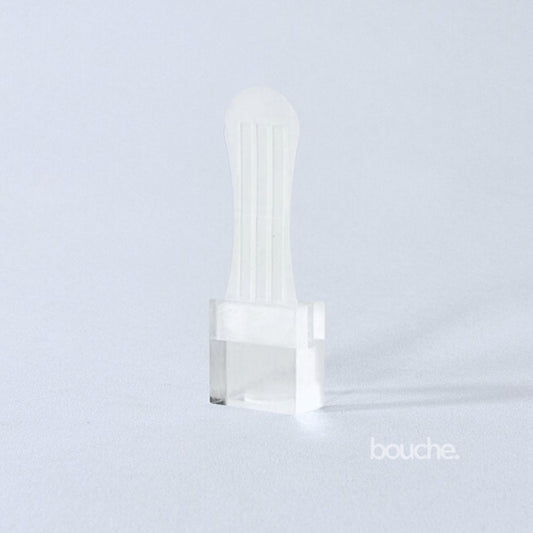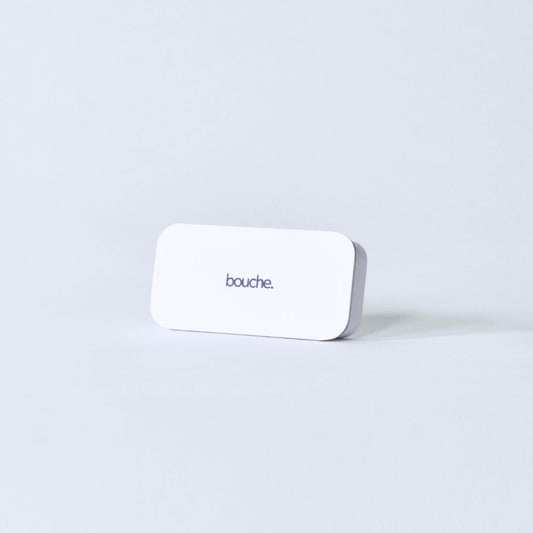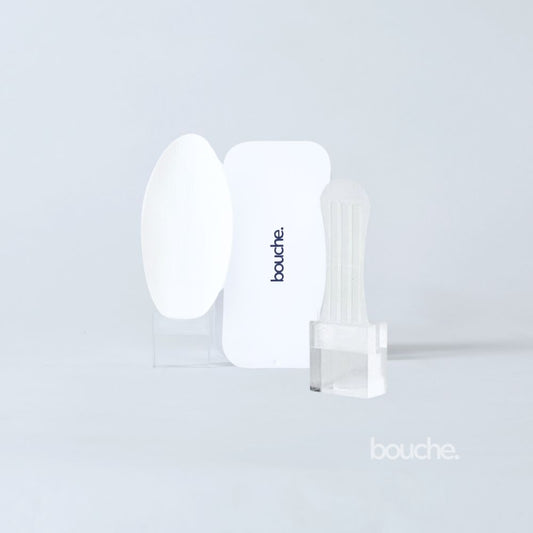Vitamins and sleeplessness are often discussed together, especially as more people turn to supplements for health and wellness. But can vitamins actually cause insomnia? This article breaks down the science behind vitamins and sleep, highlights which supplements can disturb sleep, and explores practical steps for anyone struggling with restless nights. We’ll also look at how mouth taping and nasal strips—like those from Bouche—can support better sleep and even influence facial structure.
How Vitamins Affect Sleep
Vitamins play a vital role in nearly every system in the body, including those that regulate sleep. Deficiencies in vitamins such as D, B6, B12, C, and E have been linked to poor sleep quality and insomnia. However, taking certain supplements—especially in excess or at the wrong time—can also disrupt sleep for some people.
The relationship between vitamins and sleep is complex:
- Deficiencies in key vitamins can lead to sleep problems.
- Excessive intake or timing of certain supplements may also cause sleeplessness.
- Some vitamins support the production of sleep-regulating hormones like melatonin, while others may interfere with these processes if not balanced correctly.
Vitamins Linked to Sleep Disturbances
Not all vitamins affect sleep in the same way. Here’s a closer look at the most commonly discussed vitamins and their impact on sleep:
Vitamin D
Vitamin D is essential for bone health, immunity, and sleep regulation. Low levels of vitamin D are associated with a higher risk of insomnia and poor sleep quality. However, research also suggests that taking too much vitamin D, especially late in the day, might disrupt sleep by lowering melatonin levels—the hormone responsible for sleep onset. A 2023 review found that high doses of vitamin D could decrease nighttime melatonin, potentially leading to trouble falling asleep. So, can vitamin D cause insomnia? The answer is yes, particularly if taken in high doses or at night.
B Vitamins (B6 and B12)
B vitamins are crucial for energy production and nervous system health. Vitamin B6 may actually help improve sleep quality for some people, but both B6 and B12, when taken in excess or late in the day, have been linked to sleep disturbances in some studies. Elevated B12 levels, in particular, have been independently associated with a higher incidence of insomnia.
Vitamin C and E
Vitamin C is an antioxidant that helps reduce oxidative stress, which can impact sleep quality. While deficiencies in vitamin C can lead to poor sleep, excessive supplementation is not typically associated with insomnia. Vitamin E, similarly, is linked to short sleep when deficient, but high doses are not commonly tied to sleeplessness.
Multivitamins
Some research suggests that people who take multivitamins or multiple single vitamins may experience more nighttime awakenings and poorer sleep maintenance compared to non-users. The reasons are not fully understood, but it may be due to the stimulating effects of certain ingredients or the timing of supplementation.
Supplements That Can Disturb Sleep
- High-dose vitamin D (especially at night)
- Vitamin B6 and B12 (when taken late in the day)
- Multivitamins with stimulating ingredients (like ginseng or caffeine)
- Some herbal supplements (such as green tea extract or guarana)
Signs of Vitamin-Induced Insomnia
If you’ve recently started a new supplement and notice sleep problems, you might be experiencing vitamin-induced insomnia. Common signs include:
- Difficulty falling asleep
- Waking up frequently during the night
- Feeling unrested despite a full night in bed
- Vivid dreams or nightmares (especially with B6)
- Daytime fatigue
Keep in mind that other factors—like stress, screen time, or underlying health conditions—can also cause these symptoms.
How to Adjust Your Supplement Routine
If you suspect your vitamins are affecting your sleep, consider these steps:
- Check the timing: Take stimulating vitamins (like B6, B12, or D) in the morning or early afternoon, not at night.
- Review your doses: Avoid megadoses unless prescribed. Most adults only need the recommended daily allowance.
- Simplify your regimen: Use single-ingredient supplements instead of multivitamins if you suspect an issue.
- Track your symptoms: Keep a sleep diary noting when you take supplements and how you sleep.
- Consult a healthcare provider: Before making significant changes, talk to a doctor or nutritionist.
When to See a Healthcare Professional
Persistent insomnia, even after adjusting your supplement routine, may require professional help. See a healthcare provider if:
- Sleep problems last more than three weeks
- You experience severe fatigue, mood changes, or memory issues
- You have other symptoms like weight loss, night sweats, or pain
- You’re taking multiple supplements or medications that could interact
A doctor can help identify underlying causes, adjust your supplement plan, and recommend safe, effective treatments for sleep.
Bouche: Science-Backed Solutions for Better Sleep
At Bouche, we’re committed to supporting healthy sleep through science-backed, non-invasive tools. Our flagship product—medical-grade mouth tape—promotes nasal breathing during sleep, which can reduce inflammation, balance hormones, and improve cognitive function. Bouche mouth tape is designed for comfort and sensitive skin, making it CPAP-compatible for those with sleep apnea.
Scientific studies show that mouth taping can significantly reduce snoring and improve sleep quality, especially in people with mild obstructive sleep apnea. For example, a 2022 study published in Healthcare by Hsueh-Yu Li et al. (“The Impact of Mouth-Taping in Mouth-Breathers with Mild Obstructive Sleep Apnea”) found that mouth taping during sleep improved snoring and the severity of sleep apnea in mouth-breathers with mild OSA, with apnea-hypopnea index (AHI) and snoring index (SI) reduced by about half[study link]. By encouraging nasal breathing, mouth tape helps maintain optimal oxygen levels and may even influence facial structure over time—supporting a more defined jawline and better oral posture. Bouche’s dedication to safety, comfort, and science sets us apart as a leader in wellness solutions for sleep and breathing.
The Science Behind Mouth Taping, Nasal Strips, and Jawline Definition
Research supports the use of mouth taping and nasal strips for improving sleep quality and facial structure:
- Sleep Quality: Mouth taping helps reduce snoring and apnea events by promoting nasal breathing. The 2022 study by Hsueh-Yu Li et al. found that mouth taping could cut the apnea-hypopnea index (AHI) and snoring index by nearly half in people with mild sleep apnea[study link].
- Facial Structure: Chronic mouth breathing is linked to changes in facial morphology, including increased lower facial height and a less defined jawline. Encouraging nasal breathing through mouth taping supports better muscle alignment and may help maintain a more sculpted jawline over time.
- Daytime Benefits: Nasal breathing filters allergens, humidifies air, and supports balanced oxygen and carbon dioxide levels, leading to better focus and energy during the day.
Bouche mouth tape and nasal strips are safe, effective, and science-backed ways to support these benefits, whether you’re managing sleep apnea, snoring, or simply want to optimize your nightly routine. Studies such as “Effect of Breathe Right nasal strip on snoring” by Djupesland et al. have shown that nasal strips can reduce snoring, mouth dryness, and sleepiness[study link].
Conclusion
Vitamins and sleep are closely connected, but the relationship is not always straightforward. While deficiencies in key vitamins can cause sleep problems, excessive or poorly timed supplementation—especially with vitamin D, B6, B12, and certain multivitamins—can also disturb sleep for some individuals. If you suspect supplements are causing insomnia, adjust the timing and dosage, and consult a healthcare provider.
For those seeking natural ways to support better sleep, mouth taping and nasal strips offer a science-backed, non-invasive solution. Bouche’s medical-grade mouth tape is designed to promote nasal breathing, improve sleep quality, and even support facial aesthetics—all while being safe for CPAP users.
Prioritize a balanced approach to vitamins and consider integrating evidence-based sleep tools like mouth tape for a holistic, restful night’s sleep.
FAQs
What supplements should I not take at night?
- Avoid taking vitamin D, B6, B12, and multivitamins with stimulating ingredients late in the day.
- Herbal supplements like green tea extract or guarana can also disturb sleep if taken at night.
What is the healthiest thing to take for sleep?
Magnesium, melatonin, and certain B vitamins (in the morning) are generally safe and may support sleep quality when used appropriately.
Can vitamin D cause insomnia?
Yes, high doses of vitamin D, especially if taken late in the day, can lower melatonin and contribute to insomnia for some people.
How do vitamins affect sleep quality?
Vitamins regulate hormones and neurotransmitters involved in sleep. Deficiencies or excesses can disrupt these processes, leading to poor sleep or insomnia.
What are signs that supplements are disturbing my sleep?
If you notice new sleep problems, vivid dreams, or frequent awakenings after starting a supplement, it may be affecting your sleep. Track your symptoms and consult a healthcare provider if needed.






